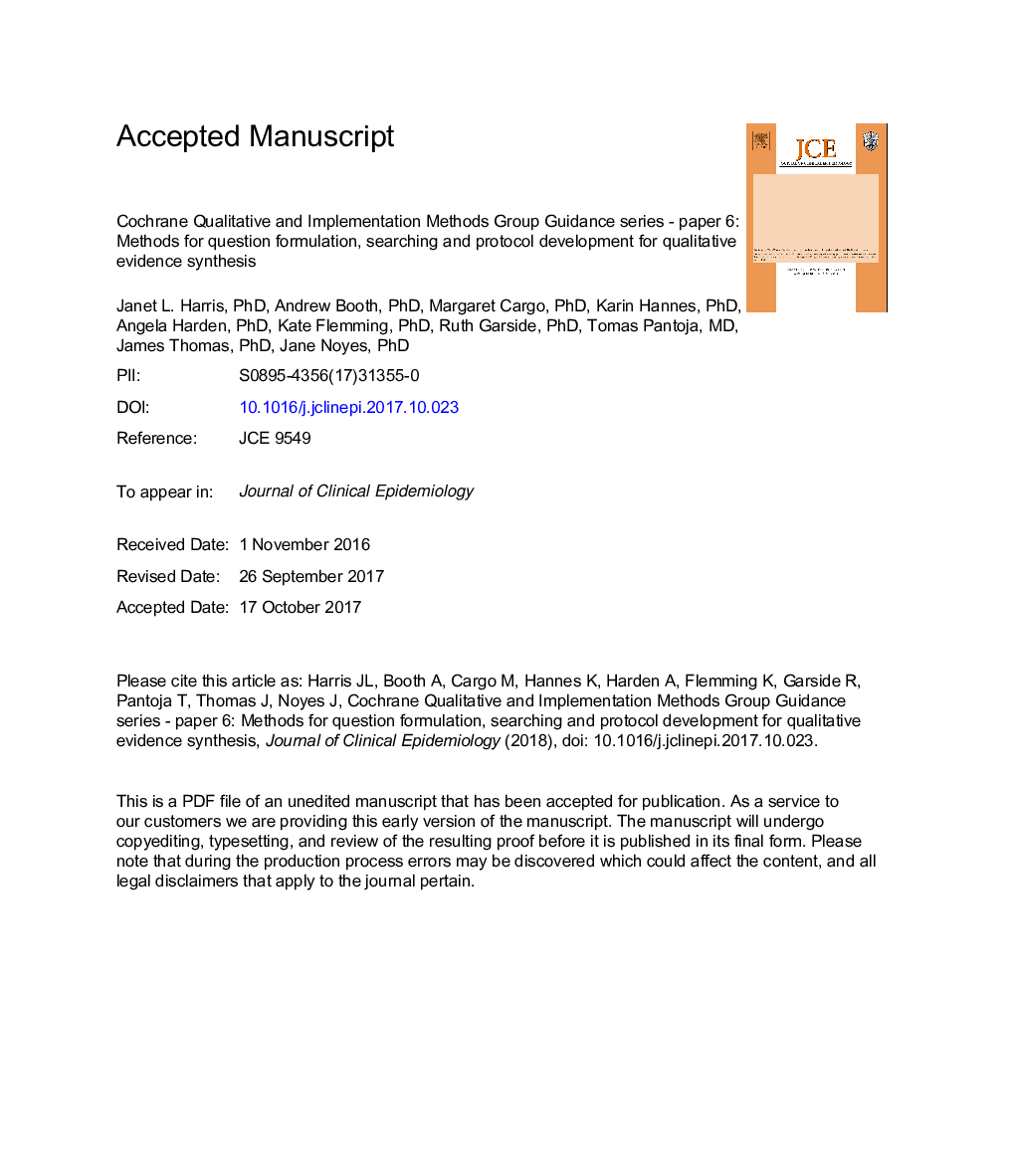| Article ID | Journal | Published Year | Pages | File Type |
|---|---|---|---|---|
| 7518778 | Journal of Clinical Epidemiology | 2018 | 42 Pages |
Abstract
This paper updates previous Cochrane guidance on question formulation, searching, and protocol development, reflecting recent developments in methods for conducting qualitative evidence syntheses to inform Cochrane intervention reviews. Examples are used to illustrate how decisions about boundaries for a review are formed via an iterative process of constructing lines of inquiry and mapping the available information to ascertain whether evidence exists to answer questions related to effectiveness, implementation, feasibility, appropriateness, economic evidence, and equity. The process of question formulation allows reviewers to situate the topic in relation to how it informs and explains effectiveness, using the criterion of meaningfulness, appropriateness, feasibility, and implementation. Questions related to complex questions and interventions can be structured by drawing on an increasingly wide range of question frameworks. Logic models and theoretical frameworks are useful tools for conceptually mapping the literature to illustrate the complexity of the phenomenon of interest. Furthermore, protocol development may require iterative question formulation and searching. Consequently, the final protocol may function as a guide rather than a prescriptive route map, particularly in qualitative reviews that ask more exploratory and open-ended questions.
Keywords
Related Topics
Health Sciences
Medicine and Dentistry
Public Health and Health Policy
Authors
Janet L. Harris, Andrew Booth, Margaret Cargo, Karin Hannes, Angela Harden, Kate Flemming, Ruth Garside, Tomas Pantoja, James Thomas, Jane Noyes,
